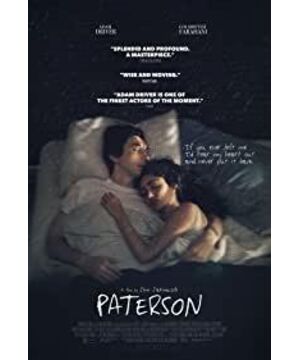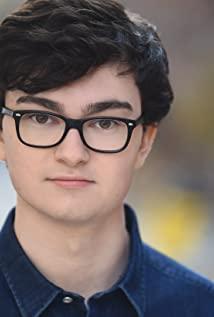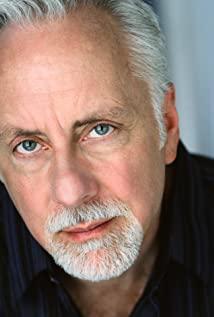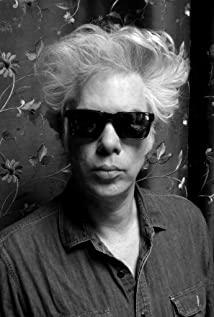Listening to some voiceovers before the movie starts, Jim Jarmusch said in an interview with The Cinephile "I like to dabble in shallow, amateurish -- I believe I'm an amateur because amateur means you Do one thing with some form of love." Jarmusch always expresses his ideas in the movies, and I would like to see "Patterson" as an argument for that statement.
In the movie, Patterson, played by Adam Driver, is a bus driver by profession and an amateur who writes poetry. "Amateur" means that he does not make a living by writing poetry. In fact, Patterson writes poetry. What Jarmusch said was out of sheer liking. Writing poetry is a purposeless act for him. It has been naturally integrated into his life like breathing. As he wrote, "My legs are running downstairs, running out the door, and my upper body is writing poetry."
He is condensing his feelings and knowledge into poetry almost all the time. He has a keen perception and perception of everything, and is happy to record them in poetry, unconsciously turning life into art, not just lovelorn, unemployment and grief It's when I want to write poetry.
Although some viewers report that Patterson's poems are lame, this does not prevent us from calling him a poet. He is a poet, not all in the ability to write poetry, but in the way he sees everything around him.
He can feel romance from a matchbox, "It's obsessed with burning a flame, maybe a cigarette in the hands of your loved one." He can sincerely look after his heart, "I sometimes think about other things. Girl, but if you leave me, I'll take my heart out and never put it back."
He can keenly feel some details of life that have no practical importance, such as many pairs of twins, some special patterns on the curtains, and he can see the poetry beneath the surface of ordinary life.
The audience's doubts probably stemmed from the elitisation of "writing poetry". If writing poetry is work, then it is very demanding, and the verse has certain technical requirements such as syllables, intonation, rhythm, etc., but when writing poetry is a hobby, it only requires you to chant your temperament.
Patterson writes poetry and does not aspire to be a popular poet. His girlfriends Laura and Patterson are a stark contrast. Laura wants Patterson to publish a book of poetry and be known by more people. She is passionate about many things, but she thinks about the results of doing one thing first. She wants to learn guitar, but she started before buying one. Fantasy "maybe still a superstar, like those great singers."
She regards the things she likes as a tool to achieve herself, which is fundamentally different from Patterson's liking to write poetry. It is precisely because of the purity of poetry that Patterson has never fallen into the trouble of identity. , until the notebook he wrote poetry was torn apart by the dog Marvin, and there was no external evidence to prove that he was a poet, Patterson really began to think about whether he was a "poet".
Through his chance encounters with Japanese poets, the director tells the audience that as a poet, professional identity is not important, you are a poet if you understand poetry and have the ability to poetize everything in spirit.
In the film text, Paterson is not only the name of the city where the story takes place, but also the name of the protagonist. This setting is not difficult to think of William Carlos Williams in his long narrative poem "Paterson", Describing the city as a man, the book also appeared on Patterson's basement desk.
Jarmusch himself admits that he likes Williams' poems very much, and Williams's creative style strives to use language close to life, opposes complicated and complicated words, and regards writing poetry as speech. Jarmusch's chapter-style film structure The gentle narrative style echoes Williams' poetry, which also employs a plethora of metaphors, symbols, and contrasts to make the film a poem in both form and content.
"Patterson" was released in 2016. In the same year, Bi Gan's "Roadside Picnic" and Yang Chao's "Yangtze River" appeared in domestic theaters. These three films were called "poetry films" by the audience, and these three films The film was polarized when it was evaluated by domestic audiences.
One of Jarmusch's favorite poets, Frank O'Hara, said in "Personality", "Don't write poetry for the world, write poetry for a man. Write a love note to the one you love, or write a A poetic little letter to someone you know."
He admits he's been trying to make "the kind of poetry that's not shouting to the world from the top of a mountain, but a little letter for someone I care about," he admits.
When people are busy chasing time and losing the ability to observe life and take care of their hearts, reading a poem, writing a note or even watching a simple movie has become a rare thing in daily life. This is a pity.
View more about Paterson reviews











